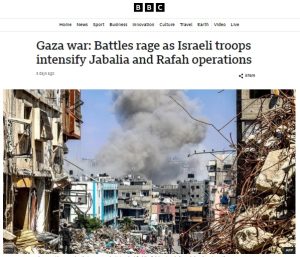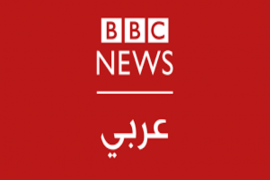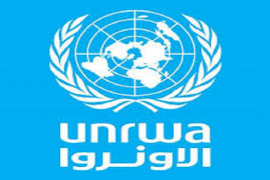Back in February the BBC’s Jeremy Bowen told Radio 4 listeners that:
Bowen: “The only journalists in Gaza at the moment are Palestinians who were there on the 7th of October and haven’t left. Many Palestinian journalists have been killed. Many others, including my colleagues from our BBC office in Gaza, have got out with their families. The ones left behind, whether by choice or because they haven’t had permission to cross into Egypt, are extremely courageous. We work with freelancers inside Gaza who liaise with a talented young Palestinian producer in our office in Jerusalem. […] We would be precisely nowhere without them.” [emphasis added]
As noted here previously, BBC audiences have indeed seen reports from the Gaza Strip that are credited to journalists who are not present on the ground but fail to clarify who actually did the filming and interviewing included in those items.
On May 15th the BBC News website published an uncredited report which provides some insight into the kind of sources currently providing the corporation with information about events in the Gaza Strip.
Titled “Gaza war: Battles rage as Israeli troops intensify Jabalia and Rafah operations”, that article includes claims concerning events in those two locations and the Zeitoun neighbourhood on May 14th and 15th provided by sources including “Hamas’s military wing”, “[t]he Hamas-affiliated Safa news agency”, “the official Palestinian news agency, Wafa” and “Gaza’s Hamas-run Civil Defence force” – the body behind a recent false story concerning ‘mass graves’.
Unsurprisingly therefore, the BBC’s account of events in Jabaliya does not include, for example, the launch of rocket attacks on Israeli civilians celebrating Independence Day from that location.
“Meanwhile, the military said its 98th Division pushed into the Jabaliya camp in the northern Gaza Strip overnight, killing many gunmen amid the fighting.
The IDF said the division’s 7th and 460th armored brigades battled “dozens of armed squads and eliminated a large number of terrorists” over the past day.
In the same area, a drone strike killed a terror cell responsible for rocket fire on the southern city of Sderot on Tuesday, the military said. […]
On Wednesday morning, several rockets were fired from Jabaliya at Sderot. Some of the rockets were downed by the Iron Dome air defense system, while at least one struck an unoccupied building, authorities said. There were no injuries.”
Towards the end of the BBC’s report, readers find the following account:
“Israeli troops reportedly advanced to within less than 1.6km (1 mile) from the centre of Rafah on Tuesday, when an Israeli soldier was killed in the south.
The IDF has told displaced residents to head towards an “expanded humanitarian area”, which stretches north from the coastal strip of al-Mawasi to the town of Deir al-Balah, in Gaza’s Middle Area.
Hind Khoudary, a Palestinian journalist in Deir al-Balah, told the BBC that many of those who had Rafah [sic] were now sheltering there.
“Unfortunately, the Middle Area is overcrowded with people. We’re talking about a very small area that is supposed to be suitable for more than one million Palestinians,” she said.
“They also asked people to go to Khan Younis, but it is completely destroyed and… people don’t have access to basic needs, like water.”
She also noted that some of those still in Rafah could not afford to pay for a vehicle to leave or were waiting for the IDF to tell them to evacuate.
“People are tired. They have been displaced more than seven or eight times… So the situation is deteriorating every single minute,” she warned.”
The majority of readers will of course not be familiar with that quoted “Palestinian journalist”. According to her Linkedin profile Hind Khoudary currently works on a freelance basis for Al Jazeera and the Turkish state-run outlet Andalou Agency. In addition, she works as a content producer for the UN’s World Food Programme (which is also quoted in this BBC report) and for the ‘We Are Not Numbers’ project run by the Hamas-linked NGO EuroMed Monitor.
Hind Khoudary – who has a record of glorifying terrorism on social media – is perhaps most remembered in connection to the arrests of several activists – including a journalist – in the Gaza Strip four years ago. As reported by the Times of Israel in April 2020:
“A fierce dispute has divided the Palestinian community after Gaza’s rulers, Hamas, arrested six local activists for chatting by video conference with left-leaning campaigners in Israel.
The Islamist terror group Hamas bans all communications with Israel and last week arrested the six members of the Gaza Youth Committee on charges of “treason” and “normalization” of relations with the Jewish state. […]
A key player in the row has been the former Amnesty activist Hind Khoudary, who on Facebook criticized Aman over the alleged act of “normalization” with Israel.
Khoudary tagged several Hamas officials in the online post, ensuring Aman’s Zoom call would come to their attention.”
Hamas and Khoudary denied that the posts on her Facebook account had prompted the arrests.
“Khoudary told AFP she did not regret her posts and did not oppose Aman’s arrest, while stressing that she was not responsible for his detention.
“I didn’t make a mistake,” she said, criticizing him over what she described as his attempt to speak on behalf of all Palestinians.
“As a Palestinian, before I became a journalist, I am against normalization,” said Khoudary.”
As documented here at the time, the BBC chose to completely ignore that story which went on for months.
The BBC’s reliance on “Palestinian journalists” such as Khoudary once again demonstrates the corporation’s very low bar when it comes to vetting the partisan sources from whom it solicits accounts of events which are then uncritically promoted worldwide as ‘accurate and impartial’ news.
Related Articles:
THE CEO OF BBC NEWS ANSWERS A QUESTION
HOW DID A BBC REPORT ON ‘MASS GRAVES’ COME ABOUT?
BACKGROUND TO A ‘HUMAN RIGHTS’ NGO WITH EMPLOYEES RECENTLY FEATURED IN BBC CONTENT





In other words the BBC are sub contracting their reporting to Hamas a proscribed terrorist organisation in numerous countries, no wonder their reporting is one sided pro-Islamist lies and propaganda #defundthebbc